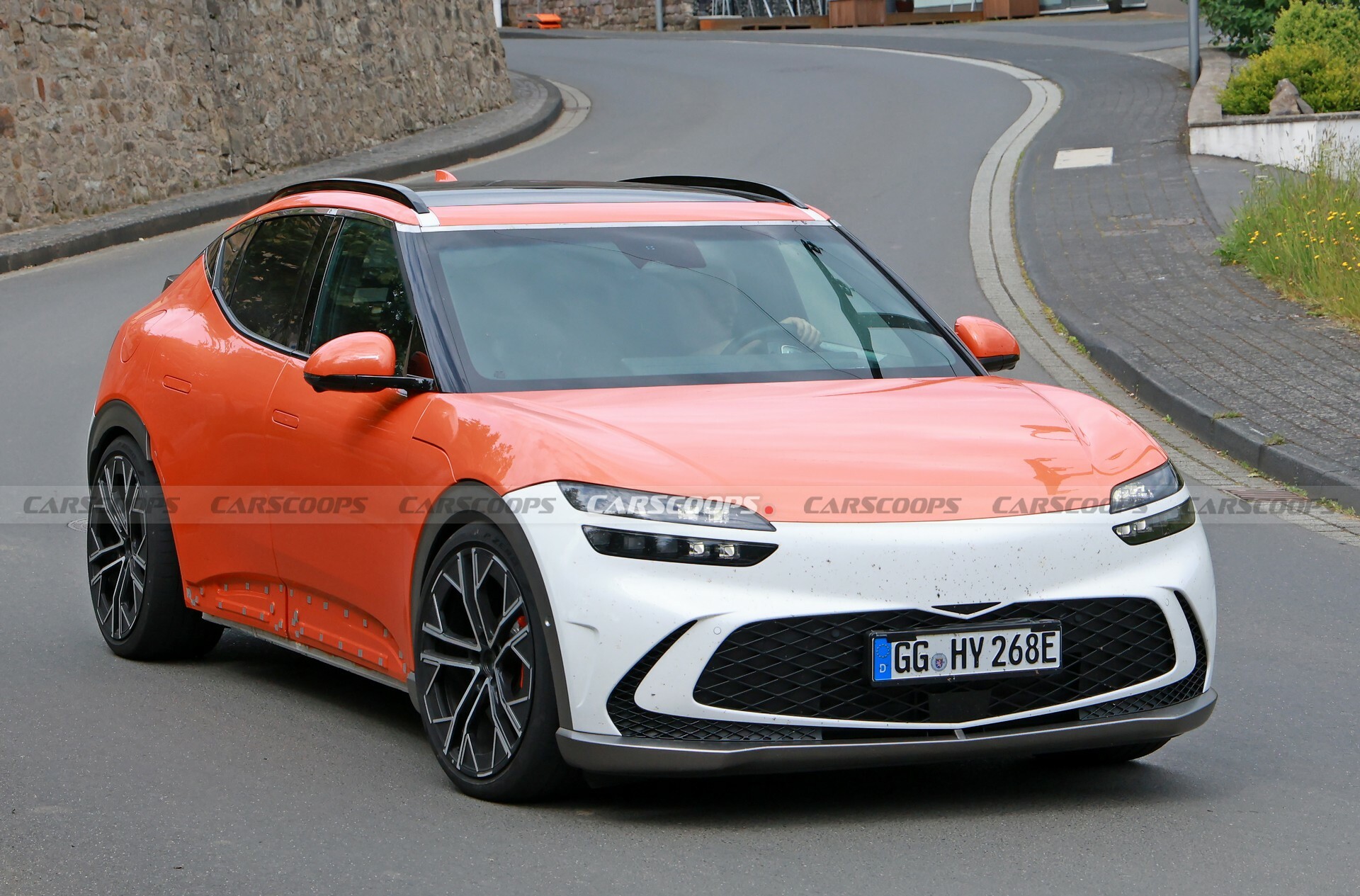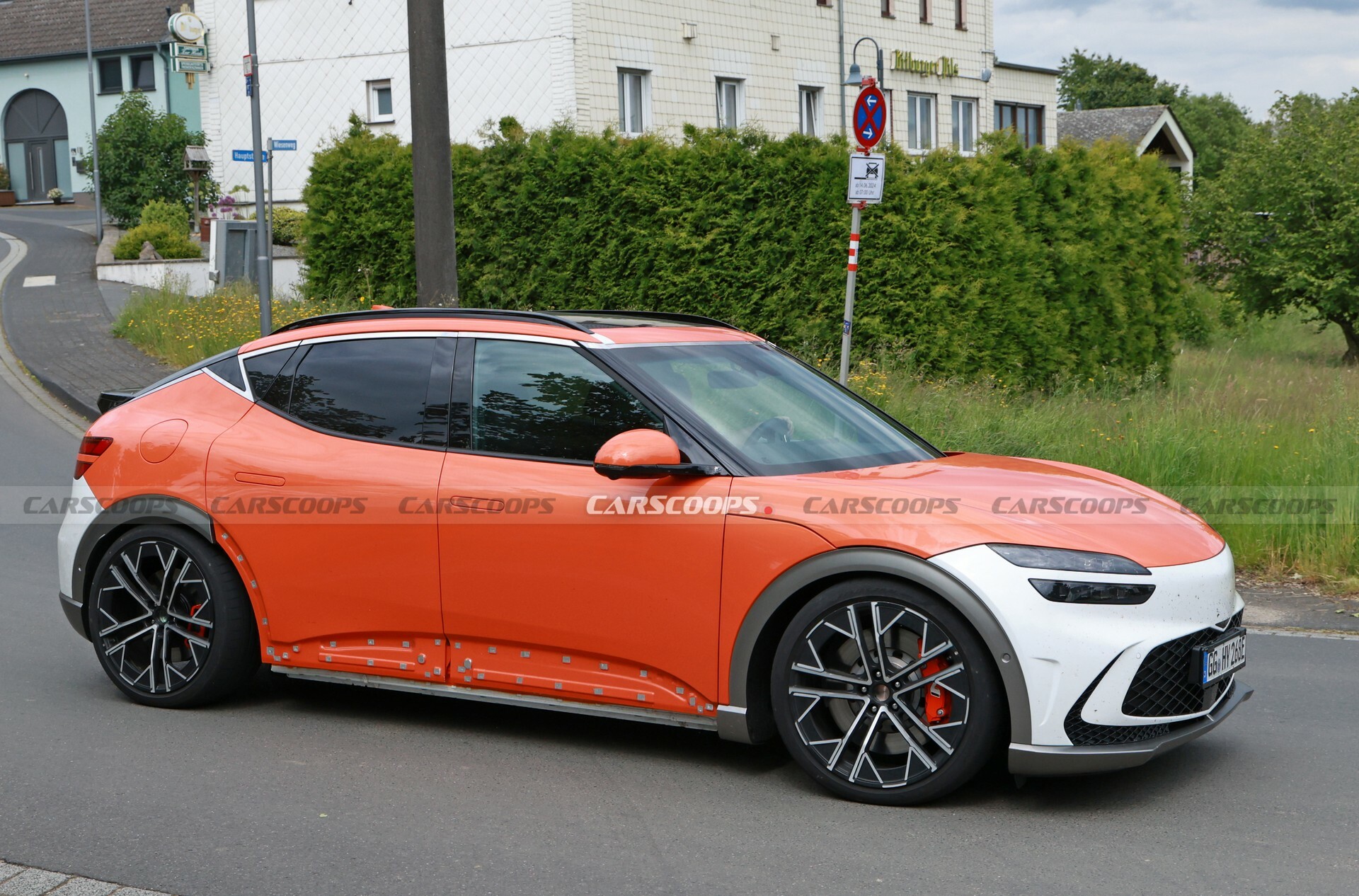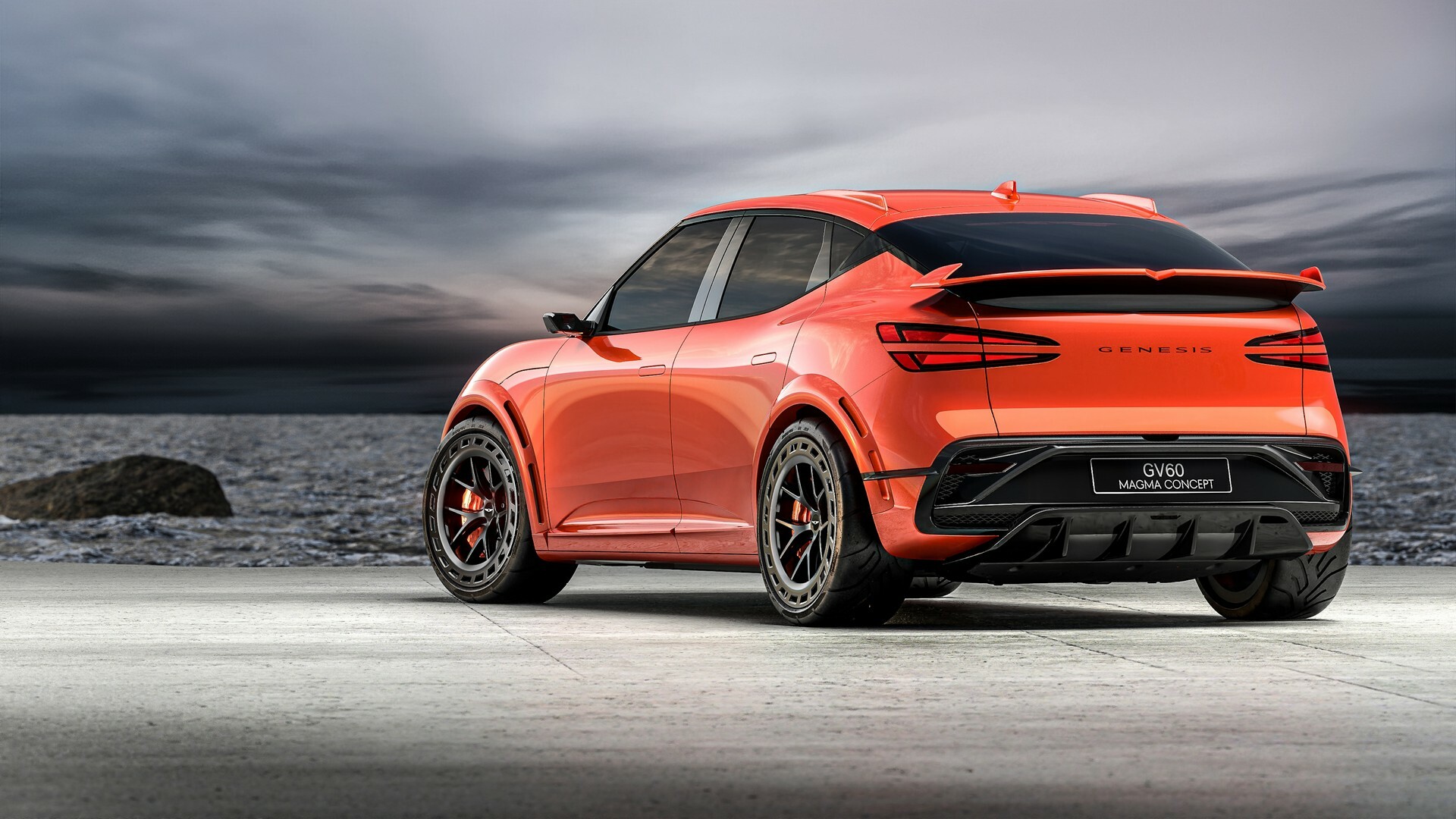- Genesis is testing a prototype of the GV60 Magma performance EV, hinting at a possible production model.
- The prototype features subtle design changes and N-branded brakes, suggesting a potential link to Hyundai’s N performance division.
- The production model will have more extensive changes and borrow heavily from the Ioniq 5 N.
Genesis introduced the GV60 Magma concept in March and confirmed it would eventually go into production. We’re now getting a glimpse of the electric crossover as spy photographers have snapped an early prototype undergoing testing in Europe.
Caught wearing a standard body, the model doesn’t raise too many eyebrows aside from its two-tone design. However, a closer inspection reveals the crossover has been equipped with N-branded brake calipers sourced from the Hyundai Ioniq 5 N.
More: Genesis GV60 Magma Concept Previews New High-Performance Sub-Brand
While there isn’t much to see, the concept had an aggressive front bumper with larger intakes to aid in cooling of key components. The crossover was also equipped with canards, extended fender flares, and 21-inch wheels with “aero discs.” They were joined by roof-mounted fins, a sizable rear wing, a lowered suspension, and a sporty diffuser.
The upgrades continued inside with Nappa leather and suede sport seats that had body-colored backs. They were joined by orange contrast stitching as well as titanium grey accents.
SH Proshots
Genesis was coy on performance specifications, but said Magma variants would take the brand into “high-performance territory” and redefine the “boundaries of performance and luxury, delivering an experience that ignites passion and exhilaration with every ride.”
Marketing hyperbole aside, the model will borrow heavily from the Ioniq 5 N. That particular model has an 84 kWh battery pack that feeds a dual-motor all-wheel drive system developing up to 641 hp (478 kW / 650 PS) and 568 lb-ft (769 Nm) of torque.
This setup enables the car to accelerate from 0-60 mph (0-96 km/h) in 3.25 seconds and hit a top speed of 162 mph (261 km/h). Drivers can also expect to travel 221 miles (356 km) on a single charge.























